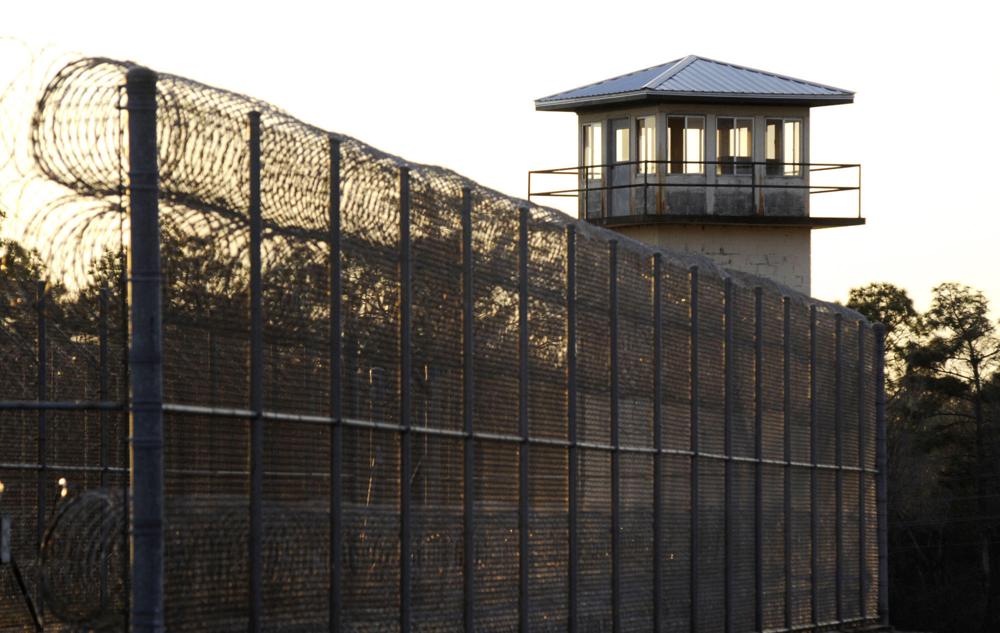April Weaver: When good time is no good

Bibb County Deputy Brad Johnson was a good friend of the Weaver family who knew he could always stop by our house for a warm welcome and good conversation while on patrol in our area, so it hit close to home – both emotionally and geographically – when he was murdered at essentially the foot of our driveway. Deputy Johnson was killed, and Deputy Chris Poole was also shot in the head while chasing a stolen car being driven by Austin Hall, a felon who had been given early release from prison after earning “good time” credits despite his bad behavior behind bars. A literal fatal flaw in Alabama’s “good time law” prompted Hall’s premature release from prison even though he had previously escaped from a work release program and had other attempted escapes and violent actions on his record. Had Hall served his full prison sentence as his behavior should have required, Deputy Johnson would still be alive today. I have pledged to honor the loss of Deputy Johnson and recognize the suffering of Deputy Poole by passing legislation that plugs the hole in our good time law and ensures that such senseless and outrageous loss is never allowed to occur again. Good time, which was formerly known as “correctional incentive time,” was originally designed to encourage an inmate to behave while in custody, improve themselves in prison, and respect the orders and authority of correctional officers. Ultimately, it was a tool to help improve the safety of our correctional officers who work in environments that are inherently dangerous and often unforgiving. Encouraging good behavior in prison by rewarding an inmate with days off of his sentence can make sense if done wisely, but today, the automatic revolving door nature of early release has removed the incentive altogether. In Alabama, the law allows inmates to have up to 75 days removed from their prison sentence for every 30 days served, meaning that prisoners can serve less than one-third of their sentence. An individual sentenced to serve 15 years in prison for manslaughter, for example, could be released in little more than four years, and someone sentenced to ten years for a brutal assault could serve less than three years behind bars. Though the Legislature previously limited the categories of offenders eligible for good time, the events in Bibb County offer striking evidence that more changes must be made immediately, which is why I am asking for my reform legislation to be fast-tracked when the next session convenes. Accruing good time is currently treated as a rule that is rarely, if ever, suspended, not as a privilege that is earned only through compliant actions and proper behavior. My legislation will clearly require all inmates to prove themselves for a set term of months before good time can begin to be accrued rather than continuing the current system of starting the clock when the cell door shuts. Under the current system, good time may also be earned even if the inmate has committed crimes while incarcerated. The law as it stands, does not list any conduct occurring behind bars that would disqualify an inmate from continuing to earn good time. My legislation will explicitly prohibit access to good time for those who commit serious offenses in prison. Perhaps most troubling, Alabama currently allows more than double the amount of good time as ultra-liberal California, and our inmates are released earlier than those in 23 other states. My legislation will ensure that the reward of good time is allotted in reasonable portions and does not wholly undermine the original sentence. In recent years, our state and nation have been subjected to a deadly crime wave, and no amount of manipulated data can overshadow the headlines and offenses that all of us witness daily. Given our state’s strict adherence to traditional values, Alabama should be the safest place in the country, but making that goal a reality will require an immediate course correction in policy. On the first day of the 2023 regular session, I will ask my fellow lawmakers to join me in recognizing the suffering and sacrifice of deputies Johnson and Poole by making good time an earned privilege – not an automatic right – and taking a firm step toward truth in sentencing. April Weaver represents Senate District 14, which includes portions of Bibb, Chilton, and Shelby counties. A former member of the Alabama of Representatives, she also served as regional director of the U.S. Department of Health and Human Services under President Donald Trump.
Gov. Kay Ivey announces rules for prison ‘good time’ incentives

On Monday, Alabama Gov. Kay Ivey announced new rules for prison “good time” incentives that allow some inmates to shorten their prison stays based on their behavior. Ivey signed an executive order that she said will provide “clear rules” for prison staff and inmates on how much “good time” credit will be lost for different categories of offenses and how an inmate can restore the credit. “Our actions today, very simply put, keep violent offenders off the street, incentivizes inmates who truly want to rehabilitate and better themselves, reinforces the concept that bad choices have consequences and keeps our public safe,” Ivey said during a press conference at the Alabama Capitol. Alabama law allows inmates sentenced to 15 or fewer years in prison to receive “good time” behavior incentives to reduce their time in prison. In 2021, about 9% of state inmates were eligible for these incentives, according to the Alabama Sentencing Commission. People convicted for rape, murder, or manslaughter are ineligible. However, the order “essentially ends good time or makes it extremely difficult for anyone to earn it given the brutal conditions across the prison system,” said Carla Crowder, executive director of Alabama Appleseed Center for Law and Justice. “This is absurd and reflects state leadership that is completely out of touch with the public safety crisis in Alabama prisons. It would be laughable, if it weren’t so sad and dangerous, that anyone believes harsher punishments will fix this crisis and make anyone safer,” Crowder said. She said many of the people eligible for good time and impacted by the executive order are young people incarcerated for nonviolent drug and property offenses. Ivey’s executive order categorizes offenses from low to severe — and outlines how much “good time” will be forfeited. For example, an inmate will lose a minimum of three years of good time for a high-level violation — which includes assault, possession of a weapon, encouraging a work stoppage, and failure to obey a direct order from a prison employee. An inmate can apply for restoration in 90-day increments after a year of good behavior. Ivey said she supports the use of good time behavioral incentives, which are used to try to combat prison violence by giving inmates a reason to follow rules, but to begin with, there should be concrete rules in place. The state prison system has come under criticism and federal scrutiny for high rates of violence. The U.S. Department of Justice has an ongoing lawsuit against Alabama over prison conditions. After the fatal shootings of two law enforcement officers, some aspects of Alabama’s good time law have been criticized by state politicians. Lawmakers last year added manslaughter to the list of offenses ineligible for good time following the shooting death of Sergeant Nick Risner of Sheffield. A man accused of killing Bibb County Deputy Brad Johnson in 2022 had been released with good time despite escaping from a work release center in 2019. A spokesperson for the prison system said in July that Austin Hall, who was in a local jail on other charges after being captured, never returned to state prison custody after his escape, so he never had a disciplinary hearing to revoke the good time. Under Ivey’s order, escape would cause an inmate to permanently lose all accrued good time credit. The order also makes changes aimed at improving communication with other law enforcement agencies regarding escapes and for state prison staff to quickly assume physical custody of an escaped inmate upon recapture by another state law enforcement agency. Republished with the permission of The Associated Press.


